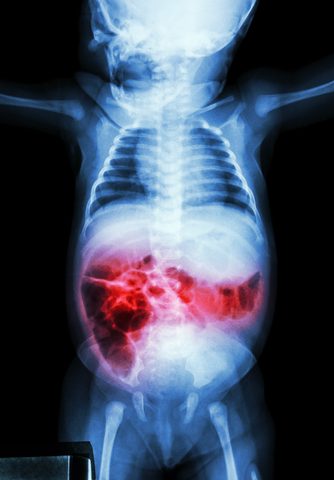A molecular-imaging drug developed at the University of New Mexico may radically change how inflammatory diseases and infections are diagnosed, creating the possibility of a non-invasive approach to detection.
“This drug may aid in the diagnosis and monitoring of many diseases in which inflammation plays an important role, such as heart disease, inflammatory bowel disease [IBD], lymphoma and leukemia and appendicitis,” Dr. Jeffrey P. Norenberg, director of the Radiopharmaceutical Sciences Program at the university, and the drug’s inventor, said in a press release. “That is what we can measure with these tools.”
The approach involves injecting a drug that will specifically bind to proteins only present on the surface of immune cells. This drug is labeled with a radioactive element (radioisotope) that permits its detection through clinical imaging techniques, such as positron emission tomography (PET).
This procedure, if it succeeds in clinical testing and is approved, may enable physicians to detect abnormalities in the accumulation or circulation of immune cells, so as to facilitate a diagnosis a disease like IBD and better determine the extent of inflammation and infection. It may also be used to monitor the effects and efficacy of treatment.
“This is a technology that could allow us more immediate and very prompt visualization of the infection to distinguish bone and soft tissue infection without having to do any blood handling,” Norenberg said.
Its possible use in patients, however, is still a way off. The researchers estimated that three-to-five years of clinical testing is ahead, before the technology might be approved by the U.S. Food and Drug Administration (FDA).
Considerable preclinical safety and efficacy research has already been conducted, Norenberg said. “We are now to the point where we have about half a dozen patents and we need a sponsor that is willing to support clinical trials which are estimated to cost about $1 million,” he said.
A diagnostic appraisal may be possible quickly, as information becomes available between five to 30 minutes after the drug is injected. “Its very easy compared to the standard of care today, which involves the collection and radiolabelling of each of patient’s own blood,” Norenberg said.

